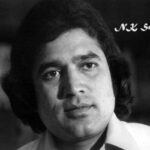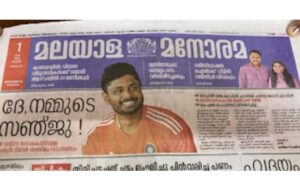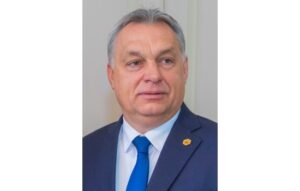One cannot dispute the fact that ardent reformer Sir Syed’s educational mission and message of Hindu-Muslim unity are more relevant today than ever before. A Sir Syed is born once in centuries
 By M J Warsi
By M J Warsi
The British colonial rule ushered in a number of changes of far-reaching consequences in the Indian society through the spread of modern education, which generated consciousness of nationalism among Indians of all denominations. Nationalistic feelings got expressed through political, socio-cultural and religious activities. The enlightenment that came with the acquisition of modern European education by individuals belonging to both Hindu and Muslim communities generated consciousness in society at large.
Several social, religious, cultural, and political movements and organisations emerged in India in the latter part of the nineteenth century mostly led by highly educated and enlightened leaders and reformers of different communities. Sir Syed Ahmed Khan was one such prominent personality who influenced Indian society significantly with his ideology and philosophy.
Sir Syed’s supreme interest was the intellectual development of the people, particularly Muslims of the sub-continent who had fallen behind, through modern and scientific education. He succeeded to a greater extent in making the people understand the importance of modern and scientific education and achieve it in order to stand on their own and live a dignified life in society.
Sir Syed believed that Indian nationalism was secular and based on a synthesis of the Hindu and Muslim cultures. He stood firm for the synthesis of the East and the West. He always talked about his belief and philosophy, such as democracy, nationalism, relationship between lslam and Hinduism, brotherly ties between Hindus and Muslims and attitude towards the British.
In his work ‘Secular Tradition at Aligarh Muslim University’, Khaliq Ahmad Nizami clearly mentions that the Revolt of 1857 was the greatest event in Sir Syed’s life which shaped and guided his personality. The main victims of the British crackdown on Indians after the failure of the revolt were the Muslims who were brutalized and robbed of their properties and dignity.

Sir Syed wanted to revive their social and economic conditions through modern education and for the propagation of modern education he founded the Mohammedan Anglo-Oriental (MAO) College at Aligarh in 1877. The college was both an institution and a movement. It popularized scientific education among the Indians. From the very beginning, the doors of the institution have been kept open to all irrespective of caste, class, colour and creed.
Secular character
Since its inception, the MAO College, which later became Aligarh Muslim University (AMU), has been truly representative of the country’s multi-racial, multi-religious and multi-lingual character. People from different communities, and from all parts of the country – from Kashmir to Kanyakumari and from Gujrat to Assam – have studied here although they belong to different cultural traditions and speak different languages.
It is interesting to note that despite of their religious, cultural, ethnic, regional and linguistic differences, AMU students not only mix freely among themselves on the campus but also share hostel rooms with one another. They share together the pleasure and agonies of hostel life; they dine together on the same table and play on the same ground. This tradition of harmonious living has further contributed to the development of a broad, universal, cosmopolitan, and secular attitude in the institution.
Pandit Jawaharlal Nehru once said, “Sir Syed was an ardent reformer and he wanted to reconcile modern scientific thought with religion by rationalistic interpretations and not by attacking basic belief. He was anxious to push new education. He was in no way communally separatist. Repeatedly, he emphasised that religious differences should have no political and national significance.”
Describing the secular atmosphere that prevailed at the MAO College, S. K. Bhatnagar, in his book ‘History of the MAO College’, says, “The college remained a model of secularism almost till the end. Hindu and Muslim students fraternised with one another, and lived in peace, devoted to their common alma mater. The Hindu students competed with their Muslim counterparts for all college honours – academic, social, and in the field of sports on terms of equality. They secured admission, received prizes and medals solely on merit. They lived as comfortably in the boarding houses as Muslims and fully participated in the vibrant life of the College.”
The worldview
In the eyes of Sir Syed, Hindus and Muslims were equal. Little wonder, right from its inception, he gave higher posts in the college to non-Muslims of required merit. Some of the distinguished non-Muslim teachers who served the college during the lifetime of Sir Syed were Lala Baijnath, Babu Ram Shankar Misra, Babu Sardar Ranjan Roy, Babu Bhawani Chander Chakraborty, Babu Piyarelal, Babu Brij Mohan Lal, Munshi Bansidhar, Babu Gobindra Prasad, and Babu Binodi Lal.
The reach of Sir Syed’s educational mission is felt across the globe as the alumni of AMU have distinguished themselves in whatever fields they work in on all the seven continents of the world. His message of Hindu-Muslim unity and his educational movement have inspired and encouraged generations of people to establish educational institutions for imparting modern and scientific education for a better tomorrow to everyone without any discrimination on the basis of caste and creed or language.
One may not dispute the truth that Sir Syed’s educational mission and message of Hindu-Muslim unity are more relevant today than ever before. A Sir Syed is born once in centuries.
(The views are the author’s own/Pictures courtesy en.wikipedia.org)
Prof. M J Warsi is the Chairperson, Department of Linguistics at Aligarh Muslim University. He may be reached at warsimj@gmail.com












More Stories
When Rajesh Khanna left the shoot mid-way, told scribe, ‘I’m going for a screw’
Of the Northern Lights and an Adventure with Huskies in Swedish Lapland!
Sufiana Lived His Heart: A Daughter Reminisces